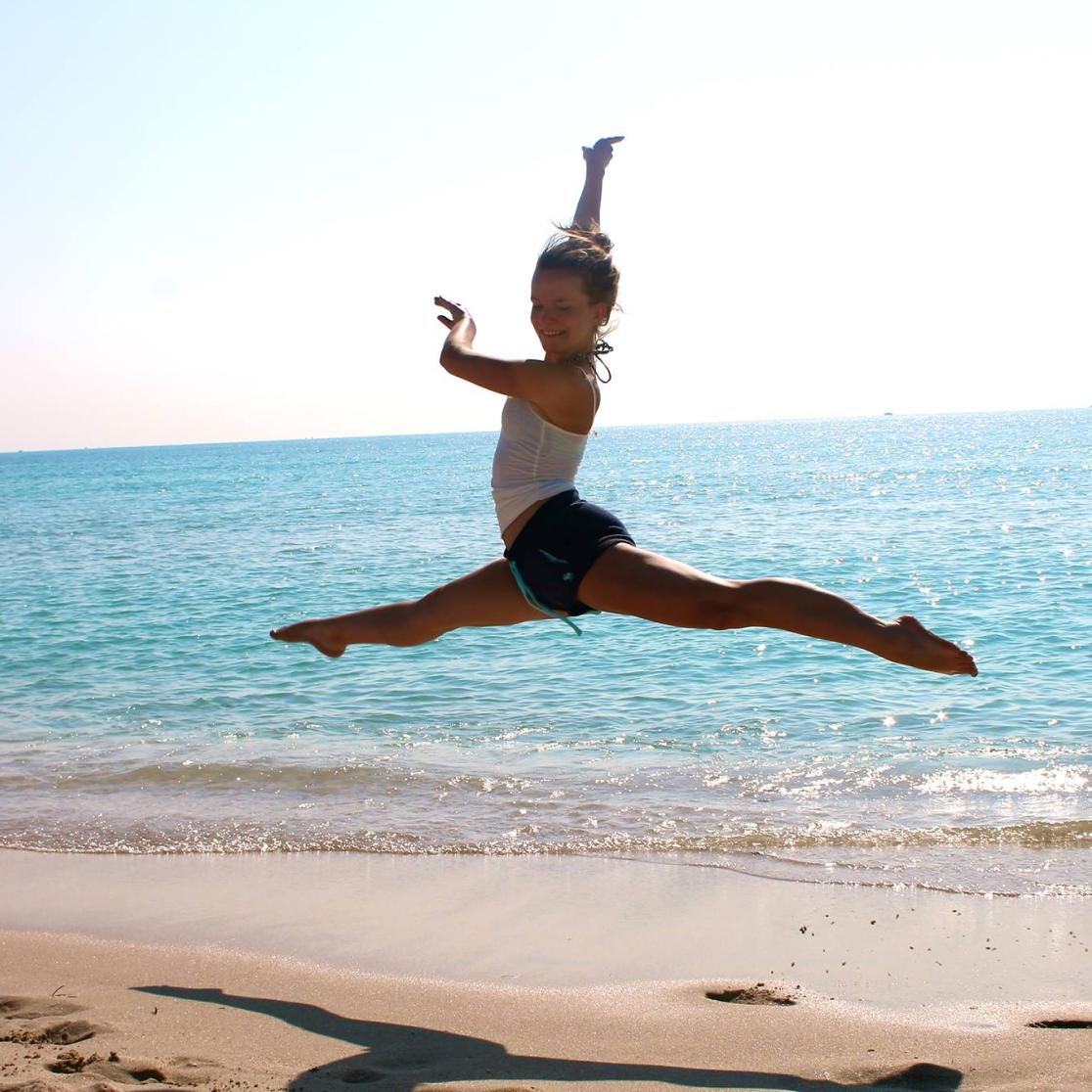Feeling fit, not insufficient
Like last year, UM’s Executive Board has allocated €75,000 available to support initiatives that support diversity and inclusivity. The call for the 2019 Diversity & Inclusivity Grants proposals has opened. Meanwhile, the initiatives of last year’s recipients are starting to make a difference.
Happy and healthy, rather than ripped
Exercise has numerous health benefits, physical and mental. And yet, by and large, we don’t get enough of it. One of the 2018 Diversity & Inclusivity Grants winners, UM SPORTS for Every Body posits that body concern is the main impediment to regular exercise - rather than the more fashionable explanation of individuals’ moral failings. Body concern is the fear that one’s body somehow doesn’t measure up, that one will be judged by others. Trying to promote wellbeing by using aspirational language and images might well exacerbate the problem.
The UM SPORTS for Every Body team consists of Carolien Martijn (Faculty of Psychology and Neuroscience), Anna Harris (Faculty of Arts and Social Sciences), Kelly Geyskens (School of Business and Economics), Latifa Abidi-Martinez (Faculty of Health, Medicine and Life Sciences), Netty Bekkers-Vos (Student Services Centre), FPN master’s students and fitness instructors Rosa Dreyhaupt and Ophélie Hue as well as research assistant Moon Waldén. Jessica Alleva, a UM assistant professor whose main research area is body image, leads the project. She has previously developed a programme called Expand your Horizon, which teaches appreciation of the body’s capabilities rather than its looks, thus promoting body positivity.
Identifying what makes people uncomfortable
Together, they aim to promote body diversity and inclusivity at UM SPORTS, so that every body – regardless of weight, age, gender expression, ethnicity, ability, etc. – feels welcome to engage in physical activity. The first step of the project is gathering data: the team are conducting surveys, focus groups and observational research into people’s perceptions of UM Sports. In April, they will start developing some firm and well-shaped recommendations in time for the summer – which brings us to the inspiration for the project.
“UM SPORTS had a marketing campaign with a picture of a chubby baby and a call to get beach-ready – it was well-intentioned but it baffled some people”, remembers Moon, a bachelor’s student at FPN. She describes privileging aesthetics over functionality as one of the main problems. “Of course, instructors want to get people to push their limits – but why not motivate people in terms of health rather than looks?” One can see the logic: if those exercising are quite fit to begin with, urging them to go from a six to an eight pack might do more psychological harm than it would do physiological good.

Moon Waldén, member of UM SPORTS for Every Body, appreciating her body's functionality.
Small tweaks for a more inclusive community
From instructors invoking ideals of beauty to older members of the UM community feeling out of place because of chiselled students, UM SPORTS is aware that they could be more inclusive. “They are very supportive and really want us to help them make everyone feel welcome.” The project might not change the societal ideal of what e.g. a woman’s body should look like, but if a few more people enjoy regular exercise, the increase in health and happiness surely constitutes money well spent.
UM Diversity and Inclusivity (D&I) Grants
UM wants to support initiatives like UM SPORTS for Every Body, which harness the motivation and ingenuity of its members to benefit the whole university community in promoting inclusiveness. Last year, the UM Diversity and Inclusivity (D&I) Grants funded seven such initiatives. Diversity Officer Constance Sommerey is pleased with the results and thinks the grants are important: “The term diversity management sounds like a top-down process. But we want to nurture bottom-up initiatives to promote organic change in the organisation. This is a great way to show that we care about the amazing ideas on inclusiveness from within the UM community. We are very excited about the second round of D&I Grants in 2019.”
Also read
-
How do plants make their secret weapons? Clever new tool helps scientists to find out.
Dutch scientists created MEANtools, a smart tool that reveals how plants make specialised compounds, reducing lab work.

-
Alum provides financial and employability support for young students
From the very first day of their master’s programme, SBE students Can Temiz and Mamadou Jabbie have had both feet planted firmly in the professional field. They are supported by scholarships from LKPU, a boutique German firm specialised in management consultancy. They receive mentoring and support...

-
Riding the waves of change: From a summer vacation to a life that feels as good as it looks
For SBE alumna Victoria Gonsior, one spontaneous decision: trying surfing sparked a journey of self-discovery, leading her to redefine success, embrace joy, and build a career that aligns deeply with her values. From quiet beaches in Sierra Leone to coaching sessions rooted in purpose, Victoria...